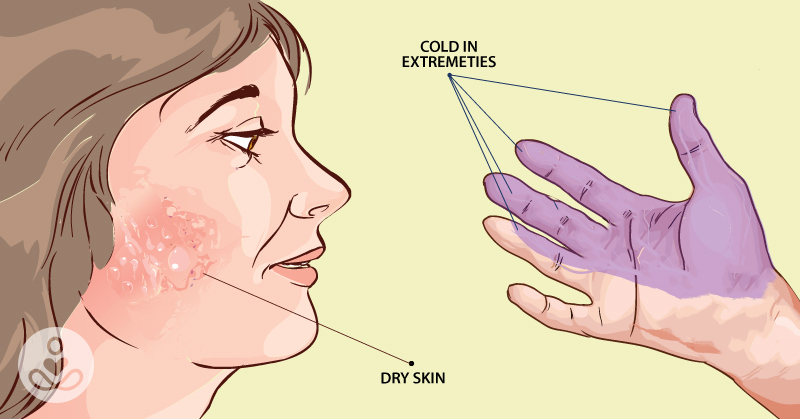Did you know that bipolar disorder and medication-resistant depression can both be caused by thyroid resistance in the brain?
It may not make sense until you consider that your thyroid affects literally every single cell in your entire body!
Let’s Talk About The Signs And Symptoms of Hypothyroidism
Our thyroid affects a ton of our bodily functions when too much or too little thyroid hormone is being produced. The main purpose of the thyroid gland is to run the body’s metabolism (1). This is why symptoms of hypothyroidism resemble that of a slow metabolism.
It is estimated that 20 million Americans suffer from a thyroid problem. So, if you think you are suffering from any of the symptoms below, then it’s best to ask your doctor about it as soon as possible. Many people suffer from hypothyroidism and don’t even know it!
Hypothyroidism happens when not enough thyroid hormone is being produced, and your body’s processes start to slow down. This then creates the following symptoms associated with hypothyroidism:
Signs of Hypothyroidism
- Fatigue, or tiring more easily
- Dry skin
- Body feels colder
- Forgetfulness
- Depression
- Constipation (3)
- Muscle Cramps
- Hair Loss
- Weight gain
- Abnormal menstrual cycle
What To Do If You Have Symptoms Of Hypothyroidism
If you find yourself with one or more of these symptoms, ask yourself the following questions:
- Does my diet consist of natural, whole foods with lots of fruits and vegetables?
- Do I avoid sugar, caffeine, and artificial sweeteners?
- Do I take action to reduce my stress levels on a daily basis?
- Do I focus on getting 7-8 hours of quality deep sleep every night?
- Do I exercise to maximum intensity on a regular, weekly basis?
- Do I take medications that slow down my metabolism? (beta blockers, muscle relaxers or narcotics)
If you answered no to any questions above, then that’s the first place to start. Changing your lifestyle will definitely improve your overall thyroid function, but it may not be enough for everyone.
Remember…
When making changes to your life, stay away from the conventional, bad advice that most doctors and nutritionists give, shown in the chart below.
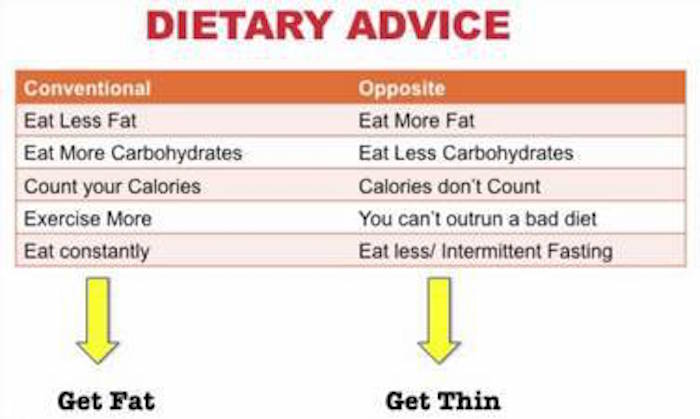
Not only will following these “opposite” recommendations above help with weight loss, but it will also help to reduce inflammation in your body and balance your hormones.
If you’ve tried all of the above and are still having symptoms, then it’s time to see a practitioner who is skilled in interpreting thyroid lab studies.
Have Your Doctor Order These Tests and How You Should Interpret Them
I recommend asking for the following blood tests from your doctor:
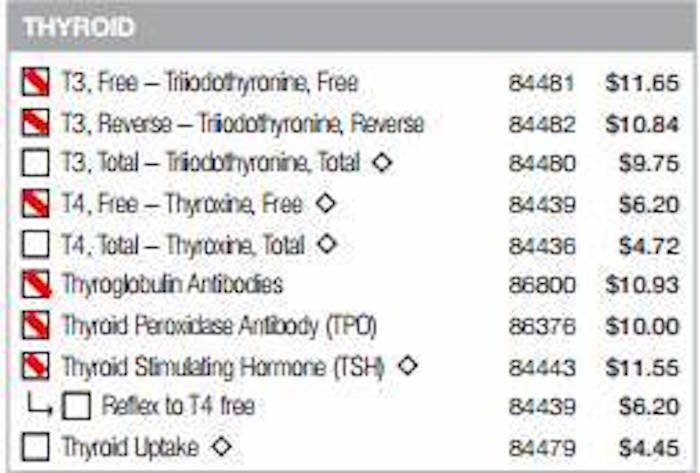
- TSH – if your TSH is > 2 you are hypothyroid, a TSH < 2 does not mean your thyroid is normal
- Free t3 – Should be in the upper 1/3 of the normal reference range
- Free t4 – Should be in the upper 1/3 of the normal reference range
- Reverse t3 – Should be < 15
- Free t3 to reverse t3 ratio – Should be > 0.2
- Thyroid antibodies (thyroglobulin antibodies and thyroid peroxidase antibodies)
- Sex hormone binding globulin – should be > 70 in women and > 30 in males
Your doctor will probably be using the reference ranges that the lab gives them when determining if your labs are “normal” or not. But using those ranges is terrible because it includes patients in their 70-80’s who probably also have undetected thyroid issues.
There is a difference between “normal” and “optimal” ranges. The values I gave above are what I consider to be optimal ranges and where patients that feel GOOD fall under.
If you fall out of the “normal” range, then you have thyroid issues. If you fall out of the optimal range and have symptoms, then you are likely suffering from thyroid problems. (5)
It’s possible to have optimal ranges and still be hypothyroid, though.
This is because we don’t know what level your body feels the best at, which is why if you have clear cut symptoms of hypothyroidism, it’s best to at least start a trial of thyroid hormone.
Let’s use this example to clarify:
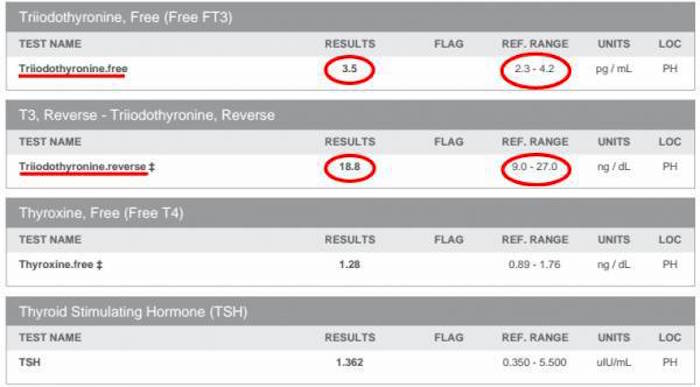
This patient has thyroid hormone resistance when you calculate the free t3/reverse t3 ratio, which (in this case) is 3.5/18.8 = 0.18.
This patient has prediabetes and several symptoms of hypothyroidism and responded very well to liothyronine (T3 thyroid hormone) with a reduction in blood sugar and increased weight loss.
Moral of the story…
Don’t let your doctor tell you your labs are normal if you have symptoms.
What If You Are Already On Thyroid Medication But Still Having Symptoms?
If you fall into this category, there is a good chance that you are being under-treated, or that you are being treated with the wrong type of medication.
The average doses of thyroid medication that patients need on average to eliminate symptoms:
- Synthroid (T4 alone)- 200-400 mcg per day
- Armour thyroid (combination of T4 and T3)- 2-4 grains per day (120-240mg)
- Cytomel or liothyronine (pure T3) – 75-125 mcg per day (6)
If you are still having hypothyroid symptoms (constipation, cold intolerance, fatigue, etc.) despite being on one of the medications above you should look into having your dose increased.
Your doctor should NOT titrate your dose based on your TSH (which is what most doctors do).
The pituitary gland – the part of the brain that pumps out TSH – has unique deiodinase enzymes, which makes it different than every other cell in the body! (7)
The difference in deiodinase in the pituitary makes it super sensitive to T4 and T3. So it’s possible, and common, that the pituitary is getting enough thyroid, but other cells in the body aren’t getting enough.
It’s also common for patients on Synthroid only to convert that T4 into the inactive reverse T3, which further blocks the action of T3 at the cellular level (this is what was happening in the example I showed you above).
If you’ve been on T therapy (Levoxyl or Synthroid) and are at 200-400 mcg per day, then have your doctor check your reverse T3 levels.
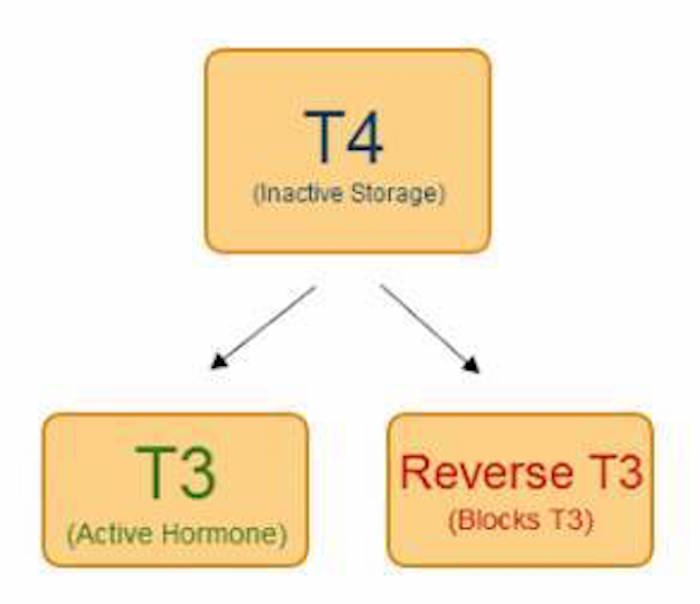
If your reverse T3 levels are > 15 or your free T3 to reverse T3 ratio is < 0.2, then you are likely suffering from thyroid resistance. In this case, you would need to switch from T4 therapy to T3 therapy.
You are more likely to have thyroid resistance if you have any of the following conditions:
- weight loss resistance
- fibromyalgia
- depression
- bipolar disorder
- insulin resistance (diabetes or prediabetes)
- chronic fatigue syndrome
- high levels of inflammation
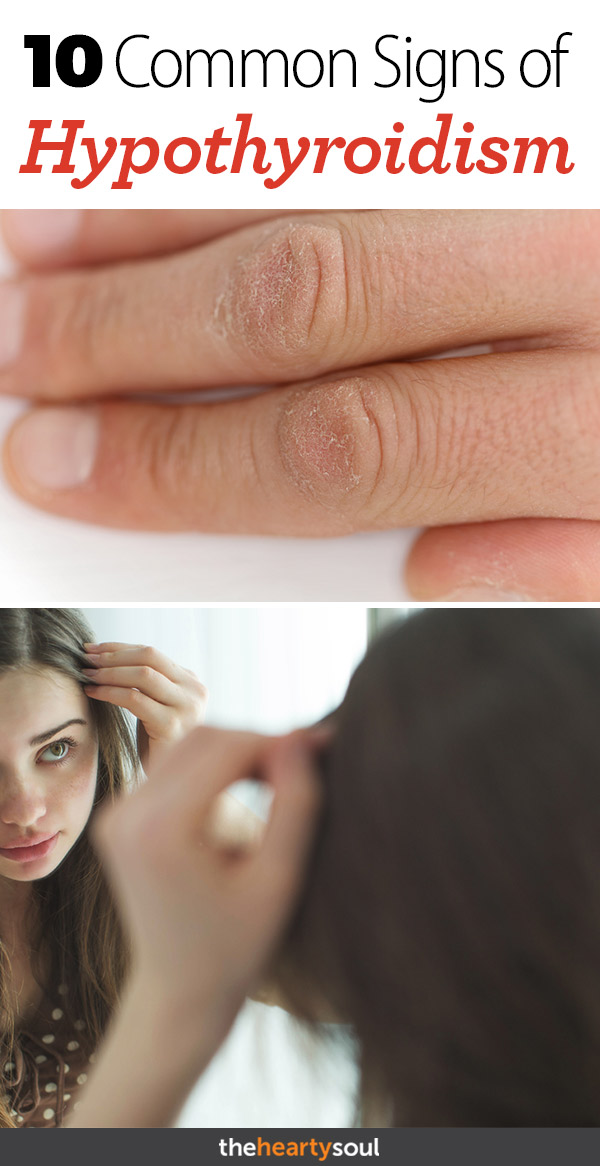
Sources
- Hypothyroidism: Overview, Causes, and Symptoms. (n.d.). Retrieved from https://www.endocrineweb.com/conditions/thyroid/hypothyroidism-too-little-thyroid-hormone
- General Information/Press Room. (n.d.). Retrieved from https://www.thyroid.org/media-main/about-hypothyroidism/
- Hypothyroidism. (n.d.). Retrieved from https://www.thyroid.org/hypothyroidism/
- Health Guides on Thyroid Disease – Hypothyroidism. (n.d.). Retrieved from https://www.thyroid.ca/hypothyroidism.php
- How to Diagnose Thyroid Problems with 4 Easy Steps. (2016, July 24). Retrieved from https://www.restartmed.com/thyroid-problems/
- Liothyronine (Oral Route) Description and Brand Names. (2017, March 01). Retrieved from https://www.mayoclinic.org/drugs-supplements/liothyronine-oral-route/description/drg-20069093
- Pituitary Gland Disorders. (n.d.). Retrieved from https://www.hormone.org/diseases-and-conditions/pituitary/overview
- Hypothyroidism Guide. (2015). Retrieved from https://www.btf-thyroid.org/information/leaflets/29-hypothyroidism-guid
